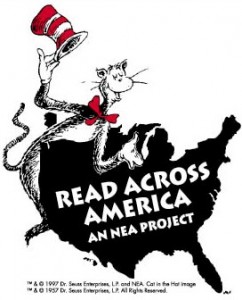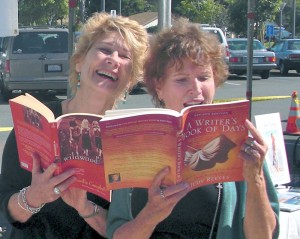When my granddaughter was five years old, she discovered the magic key that transforms individual letters into words. After she’d read her first sentence aloud, she said, “I’ve been waiting all my life to do this.”
I know exactly how she felt. When I was a young girl, my mother joined a Children’s Classics Book Club for me and my sisters. How excited I was to receive the books in the mail each month—The Swiss Family Robinson, Robinson Crusoe, Black Beauty, Little Women, One Thousand and One Nights, The Wonderful Wizard of Oz and so many more. Books that transported me to worlds beyond anything I had ever imagined. Books that inspired me to write stories, too.
Most writers begin as readers and most of us stay that way. For good reason. Nobody and nothing is a better teacher for our writing than books. Every time we pick up a good book to read, we have an opportunity to study with a master.
Examples: at one point in a novel I was writing, I needed to create a scene with a family reunited after a near-tragic event. I had no idea how to begin. Then I remembered a particular scene in Dinner at the Homesick Restaurant by Anne Tyler. After rereading it and rereading it again, I was back with pen in hand, not exactly confident, but at least words were finding their way to the page. Another difficult piece that had me half-afraid and half-stuck involved an abortion. I turned to Joan Didion, Play It As It Lays—honest, clean, devastating. How to slow down and take time for a particular event? The description of a first kiss in Lit by Mary Karr. She wrote about it gorgeously for a page and a half. I have grappled with descriptions, scenes, characters, and transitions by the dozens until finally, I remember or discover a writer whose work illustrates perfectly what I haven’t been able to arm-wrestle my way into. Thank you, thank you, forever thank you.
My notebooks are filled with descriptions, sentences, phrases and images that I adore. I tear pages out of the New Yorker and make copies of passages from books and journals and stuff them into a fat, messy file labeled “keepers.” When I’m absolutely knocked out by a particular piece of work—chapter, scene, sentence, I deconstruct it to see what the writer did and how he or she did it. Once, my friend Dian, concerned about the first page of her novel, took as a homework assignment to read the first pages of fifty novels she admired. Maybe you’re one of those writers who copy, word for word, a paragraph or a page or a complete scene of a book so you can get inside the language and rhythm of the author. Or you’re in a book club like San Diego Writers, Ink Writer’s Read Book Club whose members read and discuss books from a writer’s point of view.
 Wednesday, March 2 is Read Across America Day and I’ll be reading to a classroom of students at Montgomery Middle School in San Diego. The book I’ve chosen to read from is Storky, How I Lost My Nickname and Won the Girl, by my friend Debra Garfinkle. I hope you’ll find a child to read to, not only on this special day, but every day. I hope you’ll read something for yourself, too. It will make you a better writer.
Wednesday, March 2 is Read Across America Day and I’ll be reading to a classroom of students at Montgomery Middle School in San Diego. The book I’ve chosen to read from is Storky, How I Lost My Nickname and Won the Girl, by my friend Debra Garfinkle. I hope you’ll find a child to read to, not only on this special day, but every day. I hope you’ll read something for yourself, too. It will make you a better writer.


However, reading may be a good vocabulary builder.
Yes, definitely. I love when a writer sends me to my dictionary and often read with a notebook and pen beside me so I can make notes of the words I want to look up. Thanks for posting.
I’ve always argued that good readers (decoders) do not necessarily make good writers. Are there research that you could point me to ? I’m an elementary school teacher (first grade) and have found that my so-called good readers can’t write good essays. Am I in the minority? I’m willing to research this topic.
Hi Phyllis, I agree that good readers don’t always make good writers, but I can’t point to any research that has been done to make this point. “Good” being subjective anyhow. Let me know if you do discover anything. Thanks for posting.